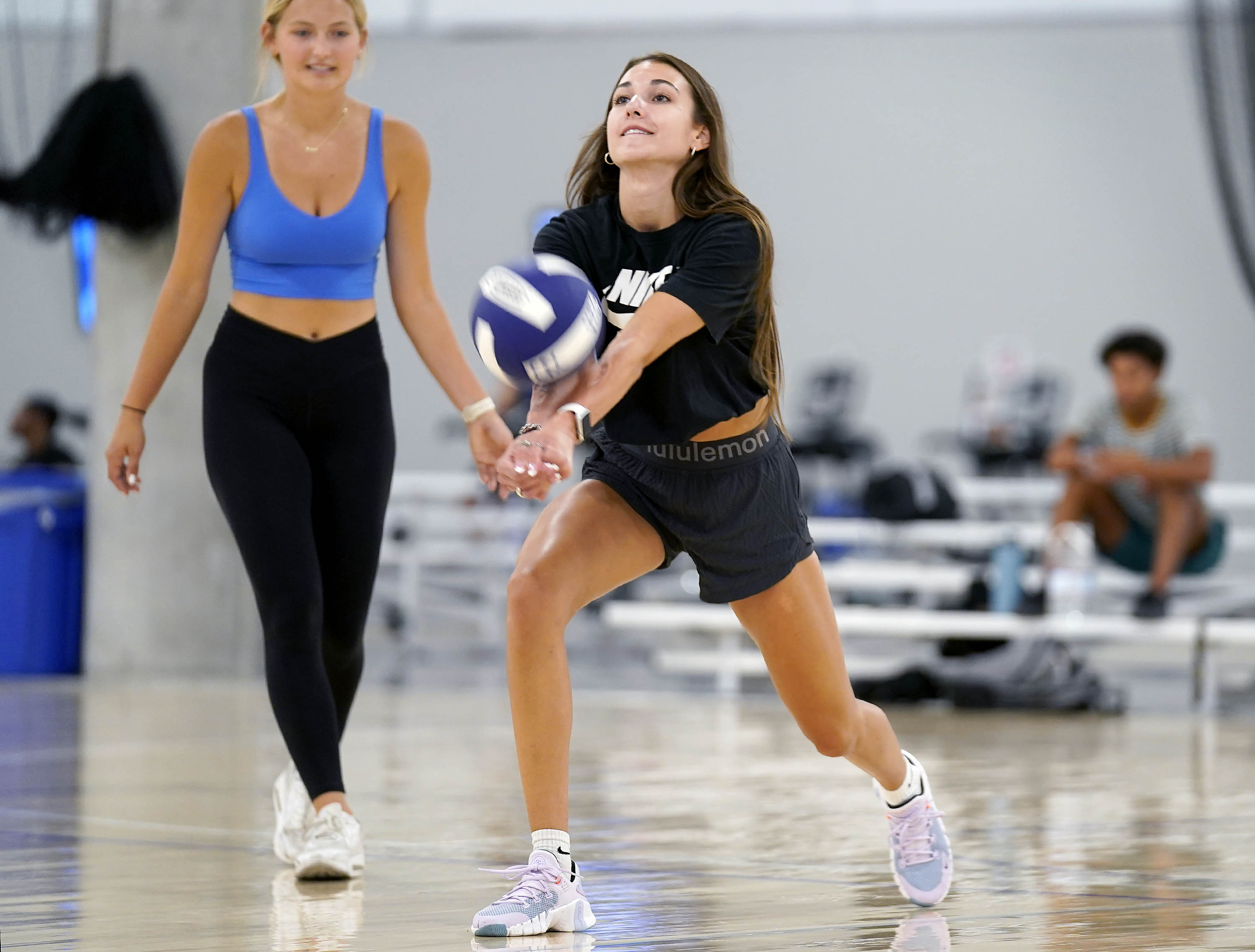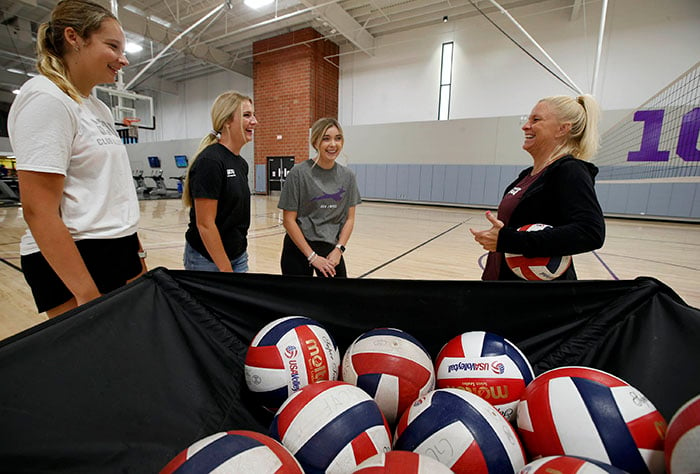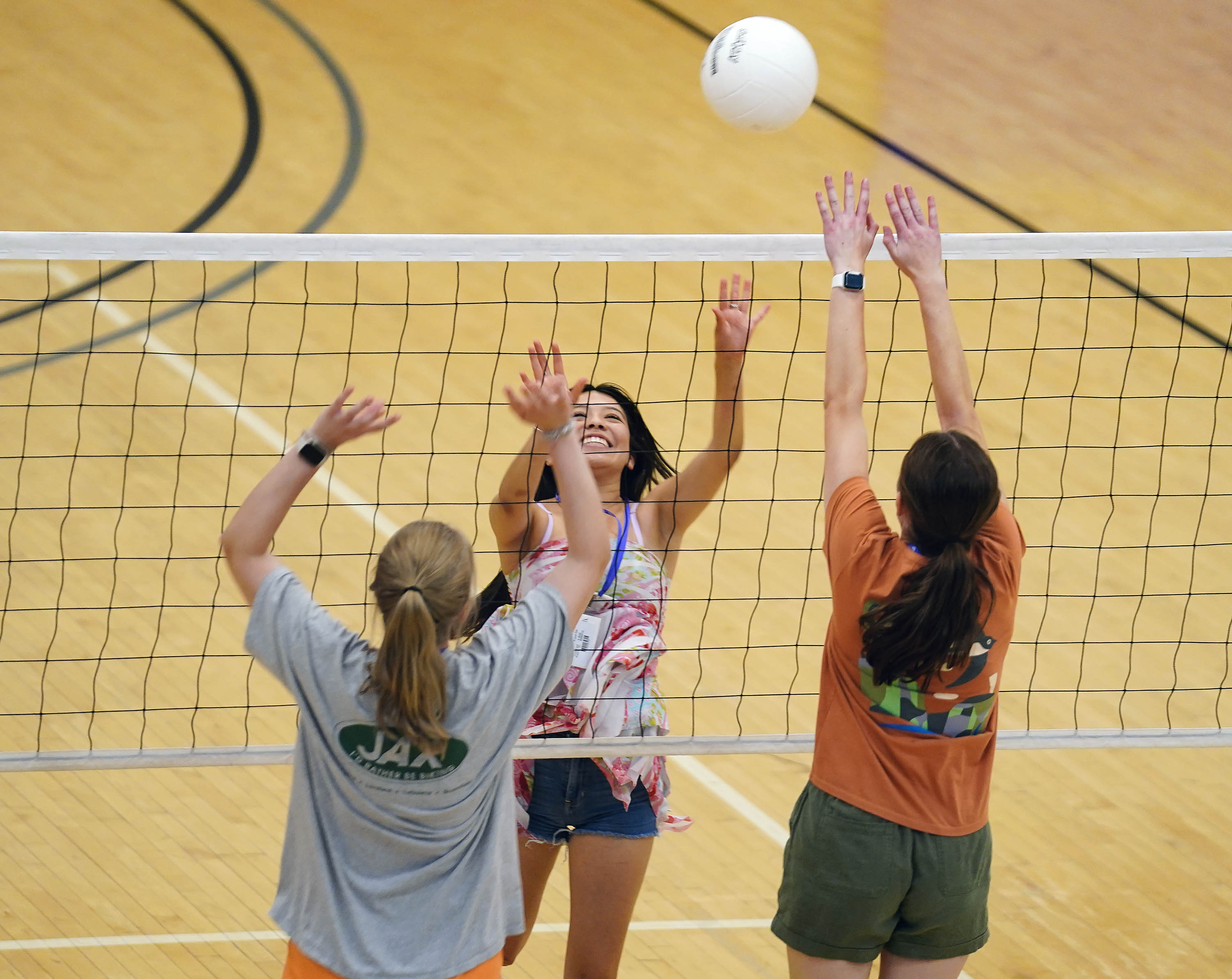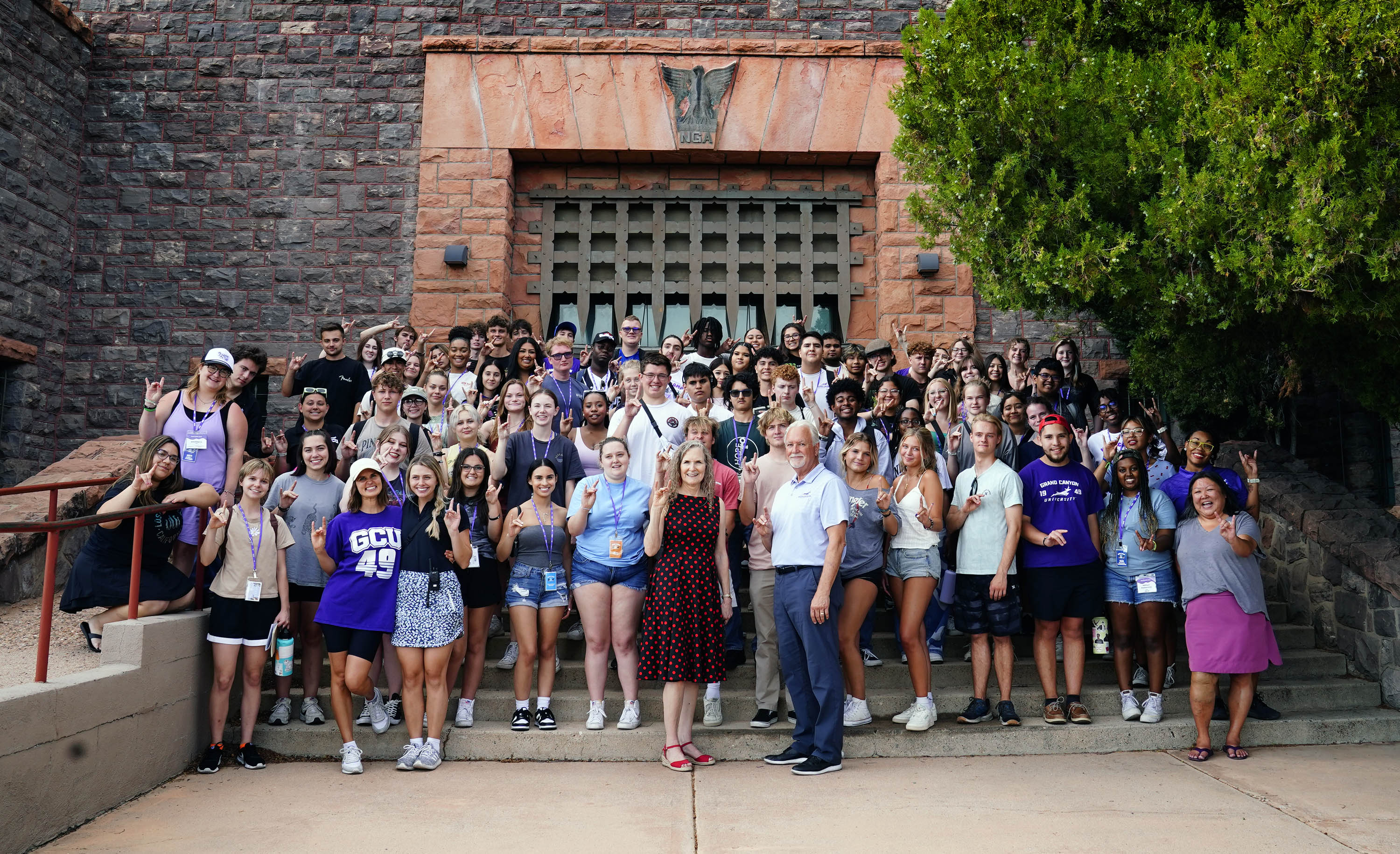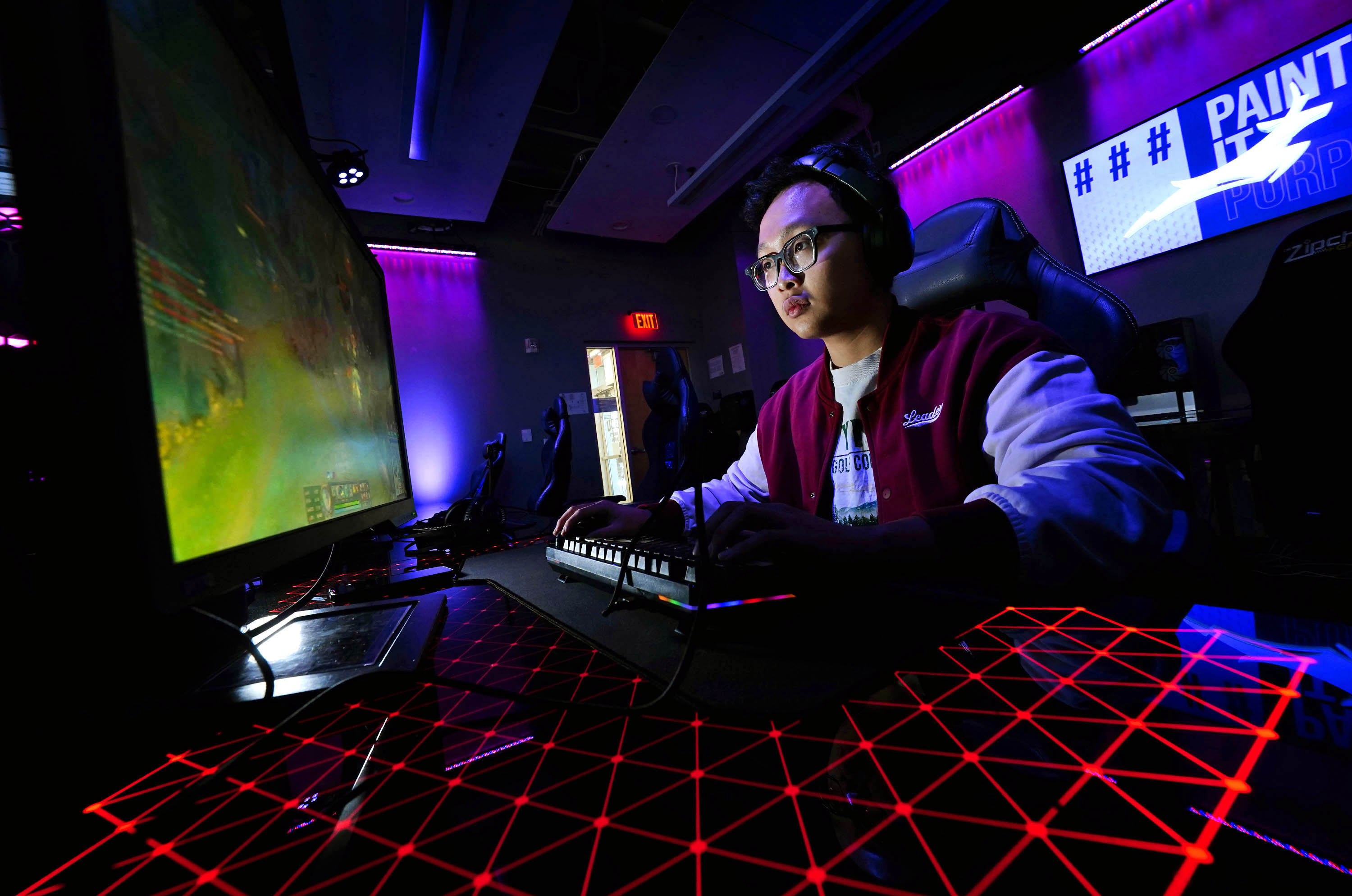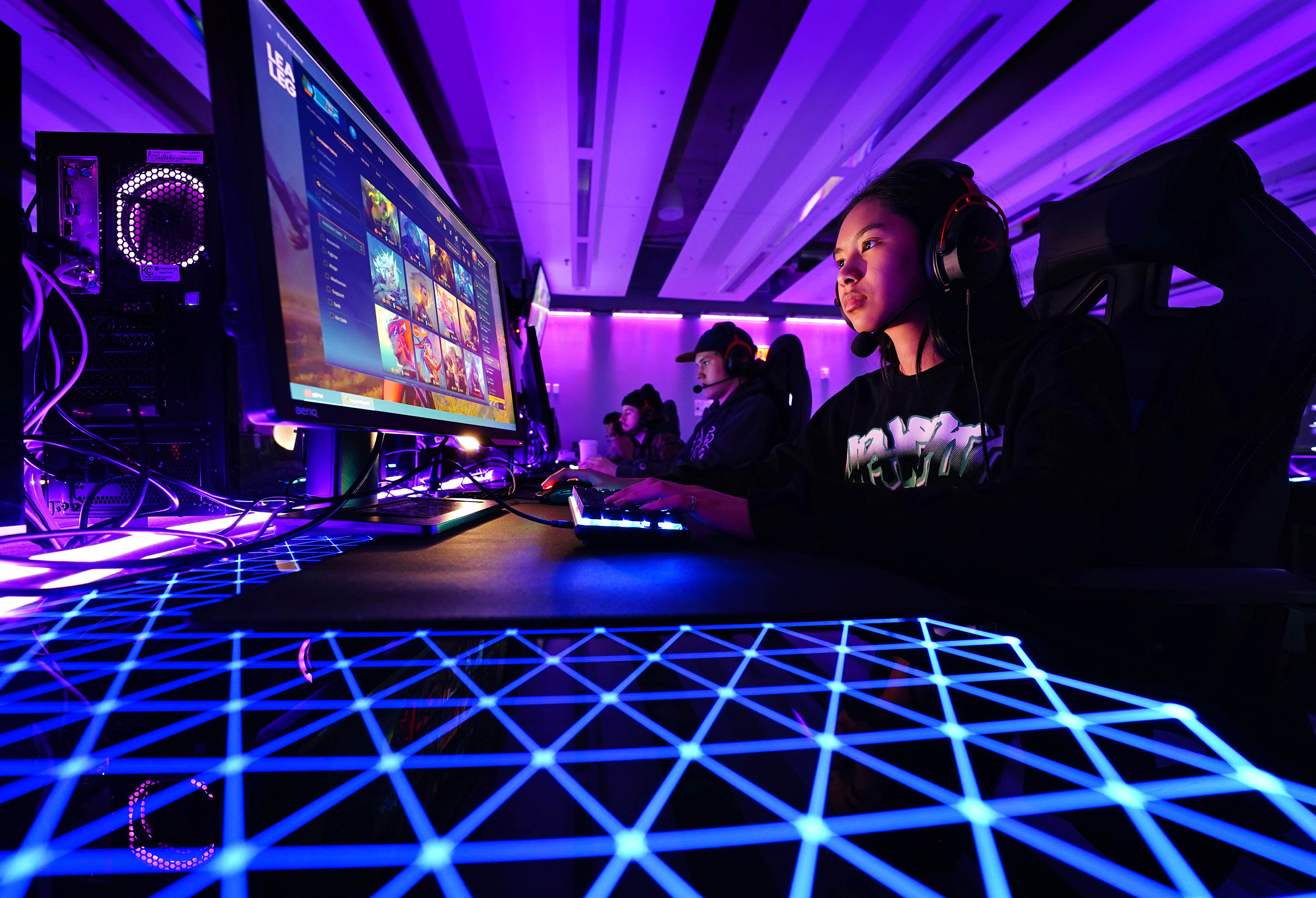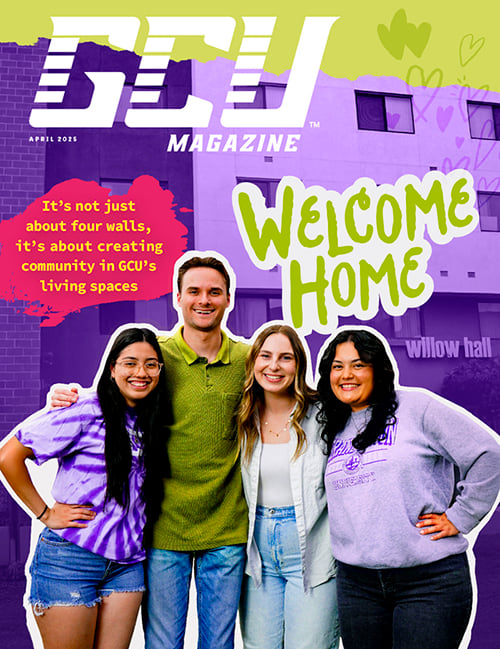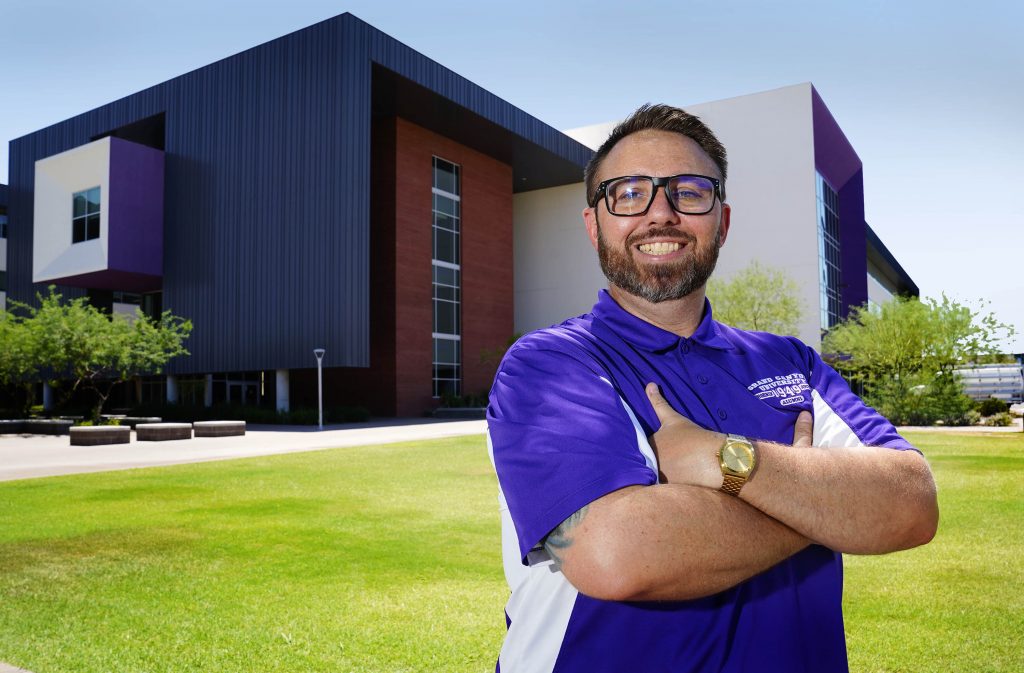
Artificial intelligence is not scary, said Dr. Thomas Dyer, it’s already a vital tool.
“I compare it to any new technology. It is the new internet. It is the new Wikipedia. It is the new Google,” said the Grand Canyon University online full-time faculty member. “I remember when Google came out. People said you will never have to use logic again. But Google didn’t kill our reasoning. It became a tool.”
Dyer, Dr. John Steele and Dr. Jean Mandernach’s “Three Student-Centered Approaches to Integrate ChatGPT in the Online Classroom” was published Wednesday as part of a 15-part “Effective eLearning” series in eLearn Magazine. It urges educators to integrate AI technology to enhance learning instead of merely reacting to it with plagiarism polices and other fears.
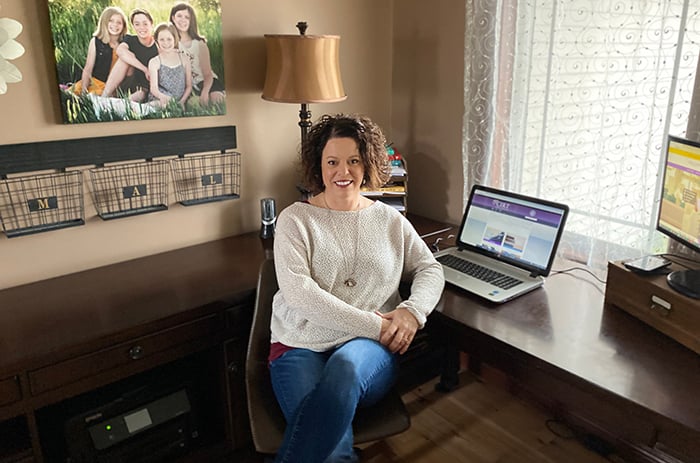
It can be used for idea generation, preparing students for a digitally advanced future and promote critical thinking, with thoughtful use of the new technology.
An example Dyer offered during an interview is using it to assess two student essays and determine the pros and cons of each, followed by discussion of what ChatGPT missed.
“Did you give it the right prompt? If you are not a good prompt engineer and create a good conversation, you will get a robotic or wrong response,” said the College of Humanities and Social Sciences professor.
GCU is leading the conversation on this hot topic and many other subjects in eLearn, a publication that is open-access and peer-reviewed, providing space for evidence-based conversation with practical applications for educators.
Mandernach, executive director of the Center for Innovation in Research and Teaching at GCU, serves as editorial board member of the publication. At its annual meeting, members discussed the need to share information backed by science from practitioners of online learning.
“The vast majority of faculty aren’t going to a data library to find best teaching practices, they are looking for easily digestible tips. The world is starving for this information post-pandemic,” she said. “That’s when I volunteered. At GCU, we have faculty with expertise in online learning, and we’ve got the data.”
The eLearn Editorial Board thought 10 articles would cover it.
“I really have to give credit to (Executive Director of Online Instruction) Rick Holbeck and the online learning team. We asked for 10 and they came back with 15,” said Mandernach, who served as the editor of the series and a writer of several pieces.

GCU was uniquely qualified to tackle the series because of its dedication to employ a team of online full-time faculty who are immersed in both the teaching and research on online learning.
Three of the 15 articles have been posted with one added every couple of weeks.
Mandernach and Holbeck authored “Two Essentials for Fostering Agency in Virtual Education,” which showed how to make online education meaningful and relevant by fostering voice and choice in the classrooms.
In a traditional educational setting, an instructor establishes guidelines and students respond to the request. But these methods make students a passive participant.
“Instead of saying, ‘You are going to write a paper,’ you say, ‘Here is what I want you to master and here are some ways you can demonstrate it — you might do a paper, a PowerPoint, an infographic.’ You let the students have some choice.”
The articles, listed under the heading of opinion on the site, are not reporting new research, yet are backed by science and were peer reviewed for publication.
“We know that if you give students choice or voice they are more active and engaged, but what hasn’t happened is that translation to online environments,” Mandernach said. “Online learning hasn’t adapted as quickly. But student agency applies across the board — in person, hybrid or online, it doesn’t matter the mode.”
She is hoping the article inspires others across the country to engage the practices.
That’s also the hope for “One Interactive Approach to Gamify the Online Classroom: Digital Badges,” an article she edited from Dyer and Jacob Aroz.
“Gamification,” said Dyer, is an emerging method to make learning fun and interactive by awarding digital badges. They are virtual rewards for accomplishing tasks or goals.
“I enjoy seeing students go after challenges and compete with each other,” Dyer said. “When I present that we are going to have a digital badge, they get so excited. I just had a student tell me it reminds her of when she was in Girl Scouts and got badges.”
It’s beyond the normal grade structure and can include challenges that build community, for example, by giving a badge for the top number of posts.
“I look at the discussion forum as the heart of the classroom. It’s where all the learning happens, and it’s how we create community,” he said.
It motivates and drives competition.
“It feels different than a traditional classroom, and that’s OK. When we create this community and fun through gamification with the elements of a game and put in elements of competition and reward it, students love it. They tell me they wake up thinking, ‘Who has posted already?’”
Dyer said the series showcases the scholarship and strategies that GCU online faculty have mastered, inspired by Mandernach.
“We often take for granted the expertise we have here at GCU,” Mandernach said. “We assume everyone is doing this. The reality is they are not. GCU is a leader in online learning. And what allowed us to differentiate ourselves is that data and research.”
Effective eLearning series
Three of 15 articles by GCU online faculty are posted so far. Watch for the others in the coming weeks:
- “One Interactive Approach to Gamify the Online Classroom: Digital Badges,” by Dr. Thomas Dyer, Jacob Aroz and Dr. Jean Mandernach. Application of game elements in higher education using digital badges as rewards to stimulate student motivation, promote community, critical thinking and drive competition. Article
- “Two Essentials for Fostering Agency in Virtual Education” by Dr. Jean Mandernach and Rick Holbeck. Learner agency, making education meaningful and relevant, involves fostering voice and choice in online classrooms. Article
- “Three Student-Centered Approaches to Integrate ChatGPT in the Online Classroom,” by Dr. Thomas Dyer, Dr. John Steele and Dr. Jean Mandernach. By cultivating AI literacy, integrating it into assignments and using it for idea generation, it prepares students for a digitally advanced future. Article
- “Four Strategies to Foster Effective Online Teaching within a Standardized Curriculum,” by Beverly Santelli, Dr. Kendra Stewart and Dr. Jean Mandernach. Designing courses that maximize the unique qualities of each instructor while maintaining curricular consistency.
- “Five Priorities to Help Learners in the Online Classroom,” by Dr. Thomas Dyer, Dr. John Steele and Dr. Jean Mandernach. Covers ways instructors prioritize strategies that students deem most impactful, such as one-to-one feedback, asynchronous discussion forums and other methods.
- “Six Ideas for Building a Vibrant Online Professional Community,” by Katie Sprute, Dr. Crystal McCabe, Dr. Lynn Basko, Dr. Paul Danuser and Dr. Jean Mandernach. Strategies to build vibrant online Professional Learning Communities (PLCs), critical to combat the isolation experienced by online faculty and facilitate professional growth.
- “Seven Strategies for More Efficient, Effective Online Instruction,” by Dr. Lori Cooper, Dr. Amanda Laster-Loftus and Dr. Jean Mandernach. Strategies to maintain efficient time management and focus on activities to maximize student learning and engagement in the online environment.
- “Eight Priorities for Instructional Videos in the Online Classroom,” by Dr. John Steele, Dr. Sarah Robertson and Dr. Jean Mandernach. Key considerations in making instructional videos learner-centered and relevant to enhance student engagement and learning in the online classroom.
- “Nine Tips for Humanizing Online Learning,” by Dr. Lori Cooper, Rick Holbeck and Dr. Jean Mandernach. Strategies to create a meaningful and engaging online learning environment that fosters social relationships and taps into the inherent social nature of learning.
- “Ten Strategies for Fostering Instructional Presence in the Online Classroom,” by Dr. Sarah Robertson, Dr. John Steele and Dr. Jean Mandernach. Strategies for enhancing instructional presence in the digital learning environment to alleviate geographic constraints and students’ sense of isolation.
- “Eleven Best Practices to Support Learners with Disabilities in the Online Classroom,” by Dr. Rebekah Dyer and Dr. Jean Mandernach. Best practices to support learners with disabilities using inclusive teaching practices and effective support systems.
- “Twelve 'No Skips' Approaches for Developing Social Presence Literacy in Virtual Education,” by Dr. Thomas Dyer and Dr. Jean Mandernach. Strategies for implementation of robust social presence, fostering an interactive and connected learning community.
- “Thirteen Strategies to Increase the Impact of Assignment Feedback,” by Dr. Jean Mandernach and Dr. Helen Hammond. Strategies to provide feedback to enhance students learning by not only rectifying conceptual misunderstandings but to engage and motivate students and strengthen their belief in their academic capabilities.
- “Fourteen Creative Assignment Ideas for the Online Classroom,” by Dr. Jean Mandernach and Morgan McNaughton. Unique, experimental and collaborative tasks, such as digital storytelling, virtual field trips, interactive infographics and more, can bridge the interpersonal gap in virtual classrooms and inspire active participation.
- “Fifteen Technologies to Enliven Online Teaching and Learning,” by Jacob Aroz, Elizabeth Larson and Dr. Jean Mandernach. Technologies that can enhance the learning experience by infusing curriculum with digital tools specifically chosen to align with teaching objectives
Grand Canyon University senior writer Mike Kilen can be reached at mike.kilen@gcu.edu
***
Related content:
GCU News: GCU online education innovators led 25-year push
GCU News: GCU expert forecasts post-virus shift to more dynamic future of learning

